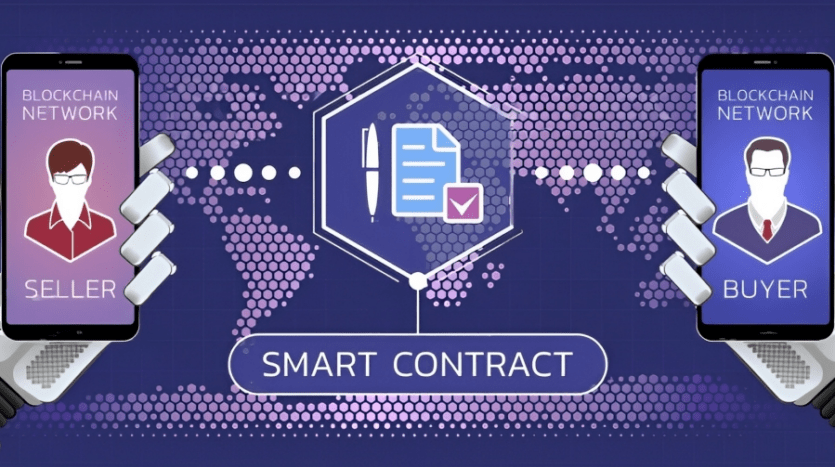How Smart Contracts Are Transforming Sales Transactions
Closing a deal has always been a multi-step process involving multiple layers of approvals and tightly interwoven legal and financial arrangements. Traditional businesses have depended on intermediaries — banks, brokers, lawyers — to validate trades, maintain contracts, and regulate parties. These safeguards are meant to make the process more trusted, but they increase the time taken, cost, and scope for human error.
Now, Blockchain technology is redefining the way sales unfold. At the heart of this transformation lies smart contracts—self-executing agreements that trigger automatically when specific conditions are met. No waiting for approvals. No reliance on intermediaries. Just a seamless, transparent exchange between buyers and sellers.
The Shift to Automation
Every traditional transaction follows a familiar pattern: negotiations, paperwork, approvals, payment processing, and final execution, with each stage facing potential delays. A missing signature, a delayed bank transfer, or a minor oversight in the contract can derail the entire process.
Smart contracts does away with much of this friction. These digital agreements operate on code, executing instantly when predefined terms are met. There is no need for third-party oversight. Without delays caused by outdated bureaucratic procedures, businesses move faster, with fewer bottlenecks and, of course, reduced operational costs.
A New Level of Security and Transparency
Sales have always revolved around trust. Both buyers and sellers need certainty — buyers to be sure they are getting what they purchased, and sellers to be assured they will be paid in full. Conventional contracts try to protect both parties, but there can be miscommunication, legal loopholes, and even fraudulent situations that could trigger a conflict.
By utilizing smart contracts, each contract is recorded on a Blockchain—a permissionless and unchangeable ledger that makes sure entries are never manipulated or deleted. Since the terms of a contract can never be altered after a contract is deployed, this greatly minimizes the risk of manipulation from either side.
Every action, whether a payment, shipment verification via order confirmation, or service fulfilment, is time-stamped and on a permanent ledger. In case there is any disagreement, you do not need to go through a lengthy legal battle. Everything that was agreed and everything that occurs is indisputable on the Blockchain.
Faster Payments, Stronger Cash Flow
Slow payments are a known issue in sales. Whether it’s a delay in bank processing, an overlooked invoice, or a lengthy approval process, these hold-ups can create serious cash flow problems for businesses. Companies relying on traditional financial systems often wait days or, sometimes, weeks before receiving funds.
It is safe to say that smart contracts successfully eliminate this uncertainty. Payments are instantly triggered when conditions are met—whether a completed order, a confirmed delivery, or a met milestone. There’s no waiting for bank clearance and no need for manual intervention. Funds move directly to where they’re supposed to go, ensuring that businesses maintain a steady cash flow without unnecessary disruptions.
Eliminating Costly Errors
Even the most experienced professionals make mistakes. A misplaced decimal, a missed clause in a contract, or a misinterpretation of terms can lead to serious financial and legal consequences. Human error, while inevitable, can be costly.
Smart contracts drastically reduce these risks. Since they operate on prewritten code, every transaction follows exact instructions without deviation. There’s no room for accidental changes or subjective interpretation. What’s agreed upon is executed with absolute precision. Businesses gain peace of mind knowing their contracts won’t be compromised by typos, oversights, or last-minute alterations.
The Road Ahead for Smart Contracts
Although sectors such as real estate, supply chain management, and digital commerce have started incorporating smart contracts, their possibilities extend well beyond these initial uses. Companies in every sector are beginning to see how these automated contracts can lower expenses, enhance productivity and minimize risk.
Of course, challenges remain. Legal frameworks in numerous areas have not completely adjusted to agreements based on Blockchain technology. Some companies are reluctant to embrace the technology mostly because of worries about compatibility with their current systems.
Nevertheless, as Blockchain regulations progress and usage increases, smart contracts will probably become a common element of business transactions. The sales environment is changing, and those who adopt smart contracts now will be leaders in the future.
#SmartContracts #BlockchainSales #DigitalTransactions #AutomatedAgreements #FutureOfBusiness
Image Source: Adobe Stock
Disclaimer: This article is for informational purposes only and should not be considered legal, tax, investment, or financial advice.

